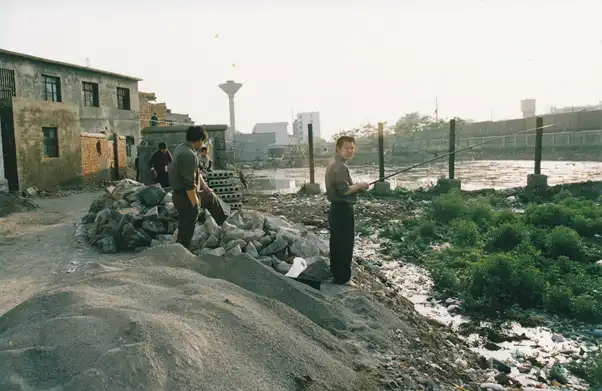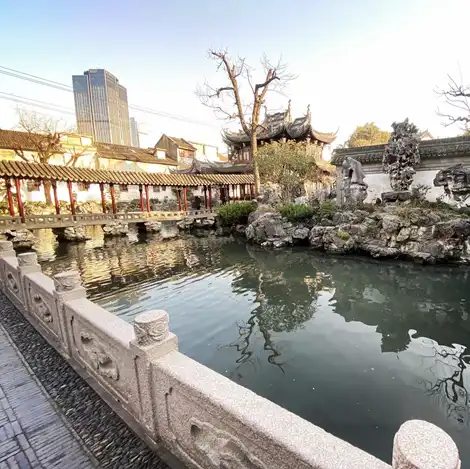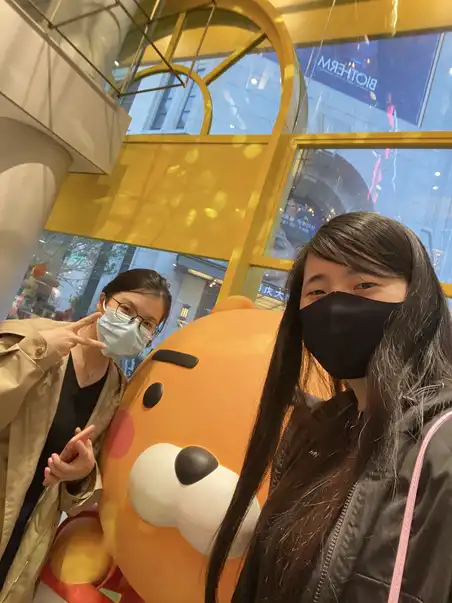Returning to China For the First Time as a Chinese-adoptee-American
Traveling internationally is a daunting task in itself especially during the Covid-19 pandemic. With the added factors of returning to my birth country for the first time as a Chinese-adoptee-American, the experience is quite unique and presents its own challenges and surprises.
During quarantine people tried new things to stave off boredom such as baking bread, exercising, and much more. When I decided to try to leave my night shift worker’s schedule and come to Shanghai in November, I experienced many firsts. First time applying for a visa after the Houston consulate closed, taking multiple covid tests, flying internationally, flying by myself, etc., but the most important one was this was my first time coming back to China in nearly nineteen years.

Photo credit: Brian Stuy
Nineteen years ago in Huaibei, Anhui, I was abandoned and “found” next to a fish farm. Like most abandoned babies, no one stepped forward as my biological parents, so I was placed in an orphanage. After ten months in the orphanage, I was adopted by an American family and moved to the US. I lived my life as any other Asian-American, except I have American parents who have an American cultural background and do not speak Chinese. Therefore, I am Chinese-American-passing to society, but my cultural background is American.
When I applied to NYU Shanghai, I knew that if I was accepted and decided to attend, I would finally have the opportunity to return to China. But that fact also came with challenges and struggles I would be forced to face. I brushed those issues away and did not think too much about them because the chance of me getting accepted was slim anyways. That was a down-the-line problem. But then they accepted me, and I accepted them. The down-the-line problem became imminent.
Being adopted from China gives me two kinds of challenges. The first kind is the legal challenges, and the second kind is identity and mental challenges.
Legally, being adopted from China slightly complicates everything government-related. When I landed in Pudong International Airport, besides having THAT covid test done, the custom workers asked me about my family background many times throughout the airport. Where are you from? Where were you born? What is your citizenship status? One of them even asked me if I had a Chinese name. These kinds of questions are difficult for me to answer because as an American citizen, my former Chinese name is my middle name. However, when I was a Chinese citizen all those years ago, I also had a Chinese name, so I was hesitant as to how to correctly respond. These extra steps did not prevent me from entering China or caused extreme issues, but they are extra barriers that non-adoptees do not have to face. And after fifteen hours of flying, I did not want to mess anything up and make my adoption be the reason I get into legal trouble.
Another instance where my adoption mattered, legally, was when I was applying for my residence permit. One of my adopted friends warned me beforehand that I needed all my adoption forms and certificates proving my citizenship status, so I knew going in that process was not as simple for other NYUSH students. At the bureau, when it was my turn, I walked up to the counter and had one of my Chinese-American friends help explain my situation. However, the whole interaction was still very difficult because he did not know “adopted” in Chinese. I was nervous and worried that I could not explain my citizenship history correctly. However, we successfully explained it, and I was told to stand in a separate line for former-Chinese citizens. Again I was nervous because I did not know what was going on. I have never been to a foreign country nor have I ever applied for a residence permit before. Once I was in this separate line, I was able to smoothly apply for my residence permit. Still, the whole process was daunting as an adoptee because I did not want my adopted status to cause a problem. And also throughout the entire legal process, I had to depend on a Chinese speaker because I understood nothing.
Despite all the extra legal hindrances, none of them compared to the culture shock, mental and identity struggles, I faced as a Chinese adoptee.

Photo credit: Maya Spaulding
Yes, I faced culture shock as an American coming to China for the first time, but the intersectionality of having an Asian, specifically Chinese, identity creates a different kind of culture shock. And, the Chinese-adoptee identity takes the culture shock and puts the experience in a whole different playing field.
I walk in the Jinqiao neighborhood, sit in the subway, and eat in restaurants in China, the country where I was born, and yet I feel like a stranger, a foreigner. Compared to my life in the States, everyone around me looks like me in Shanghai, but the feeling is not comfortable. I find no comfort or familiarity from being surrounded by people who look like me and speak my heritage language because I am not the same. Instead, I feel conflicted. Here I am finally returning to my birth country where I can physically identify with everyone, but I cannot speak the language or culturally fit in. I am ethnically Chinese and Chinese-American and have grown up in the United States, so I identify as American. However, I have been told I do not belong in the United States. I need to go back to where I came from, China. But in Shanghai, I do not have a sense of familiarity.
I, personally, do not feel like I fit in Shanghai. However, people perceive me as Chinese-national, local. Both NYUSH students and random strangers on the street speak to me in Chinese, and why would they not? We are in Shanghai, where people speak Chinese, and as ethnically Chinese, it makes sense for people to assume that I can speak Chinese. However, when people realize that I cannot speak Chinese, usually there is just an awkward pause and then understanding. I do not blame others though. It is just a reality for me. Being here and being Chinese means people will assume that I can speak Chinese. However, because language is so important in daily communication and interaction, not being able to speak Chinese is another reminder that I am foreign. But growth happens in discomfort and I chose to come here. Therefore, I accept that interacting with people and the environment is a bit awkward and just takes a slight pause to understand each other.

Photo credit: Maya Spaulding
Both college and COVID create many firsts. Coming to NYU Shanghai and returning to my birth country are my firsts that have led to and created more and more firsts. Being here in China, specifically Shanghai, despite the pandemic, has been so worth it, and I hope that this intersectionality of my American, Chinese-American, and Chinese-adoptee identities just makes my experience so much more interesting. And I know that over the remaining years, my relationship with China will change and develop just like I will.
This article was written byMaya Spauldingcurrently based in Shanghai, China. Please send an email to[email protected]to get in touch.
Photo Credit: Ethan Fang